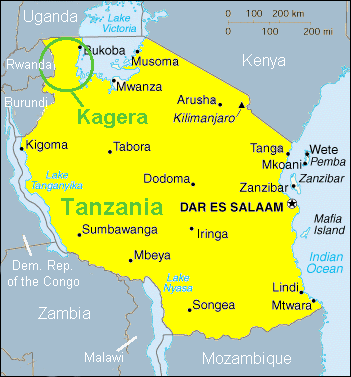Changes come slowly, if any, in Liberia. I know this relatively sparsely populated West African country and its 5.5 million people pretty well after following events and developments in this fascinating and sympathetic country since 1975. I have posted earlier on the topic of trial by ordeal, commonly called ‘sassywood trial’ in Liberia, which of course is forbidden, outlawed, but unfortunately persistent in local culture and the minds of superstitious people. See e.g. my post of August 29, 2020, on a woman in neighboring Grand Gedeh County who had died after reportedly taking ‘sassywood’ to clear her from witchcraft accusations.
Nimba County is located in northeastern Liberia and borders French-speaking Guinea and Ivory Coast (at least, the official language, of course the various ethnic groups speak their own languages). It cannot be ruled out, rather it is to be expected, that age-old traditions such as trial by ordeal also occurs in neighboring countries where the same ethnic groups including the Dan, also known as Gio and Mano, live.
(FVDK)
Liberia: Trial By Ordeal Reportedly Kills Six In Nimba County

Published: July 24, 2024
By: Jerry T. Myers, FrontPageAfrica
GBLOR DIALAH, Nimba – A woman identified as Golon Kruah, a resident of Dialah Town, reportedly died after consuming a substance given to her by an Ivorian traditional witchdoctor, Gweh Genlaly. The witchdoctor was brought to the town by local citizens to cleanse the area of witchcraft activities.
Gweh Genlaly administered sassywood to the woman after she allegedly confessed to being involved in witchcraft activities that had claimed several lives and caused suffering to others. According to an eyewitness who spoke on condition of anonymity, the sassywood was given to the deceased overnight. She died hours later and was immediately buried before the arrival of security personnel and local district leaders, who were alerted about the incident in the morning.
The Acting Paramount Chief of Gblor Clan, Oksen Troh, said he had earlier warned the witchdoctor and the youth hosting her in the community against administering sassywood. However, they violated his order and went ahead with the ritual overnight.
Mr. Troh explained that his refusal to allow the administration of sassywood was based on instructions from the County Administrative Officer, who had banned trial by ordeal in Liberia. After his objection, the citizens wrote a resolution to Mr. Daniel Zekpeh, the County Administrative Officer, during his visit to the clan. Zekpeh instructed them to give the document to Troh, but it was not given to him due to his strong opposition to sassywood.
Troh said late on Monday night, they brought a document to him to sign, authorizing them to administer the oath to Golon, but he refused. He was shocked to hear that a woman had died in the community after being given sassywood overnight, prompting him to call the police and the district commissioner.
Acting Paramount Chief Troh disclosed that Golon’s death brings the number of people who have died in Gblor Clan after taking an oath from the witchdoctor to six. He clarified that previous incidents were concealed and not reported to the police by the community, and he could not report them because he was not in authority at the time. (italics added by the webmaster FVDK.)
“In the first place, Gweh working here is not a bad thing, but I received an order from my CI [County Inspector] the other time. He told me that I should tell Gweh not to give an oath. She must cut sand, she must arrest witchcraft, she must treat people to get well, but she must not give an oath because the oath she gives can kill somebody, and Liberia law says nobody should kill someone. So Liberia law doesn’t agree with that oath,” Mr. Troh explained in Liberian colloquial.
He said upon learning about the woman’s death, he immediately informed the district commissioner of the incident and was instructed to inform Gweh and her followers to keep the body of the woman until authorities arrived to conduct tests before burial. However, to his surprise, the town hurriedly buried the woman before the district commissioner and the district coroner arrived.
Meanwhile, the ten men who signed the document authorizing Gweh to conduct the sassywood have been invited for questioning.


Trial by ordeal, known as ‘sassywood,’ is banned under national law but is still regarded as a legitimate form of justice by many Liberians. In this ritual, a suspect is subjected to intense pain and judged based on their reaction. Sometimes, a hot metal is used on the person’s leg, if it burns, they are found guilty. Sometimes poisonous liquid is used. If it kills the person, they are judged to be witch.
The UN has repeatedly warned that the practice undermines efforts to improve human rights in Liberia, as the country attempts to recover from 14 years of war.
Many legal specialists and human rights activists argue that the reliance on customs such as trial by ordeal—often harmful and even deadly—is due to the decrepit state of Liberia’s judicial system. They also contend that not enough is being done to restore the sector, which was left in tatters by the war.
Source: Liberia: Trial By Ordeal Reportedly Kills Six In Nimba County
































